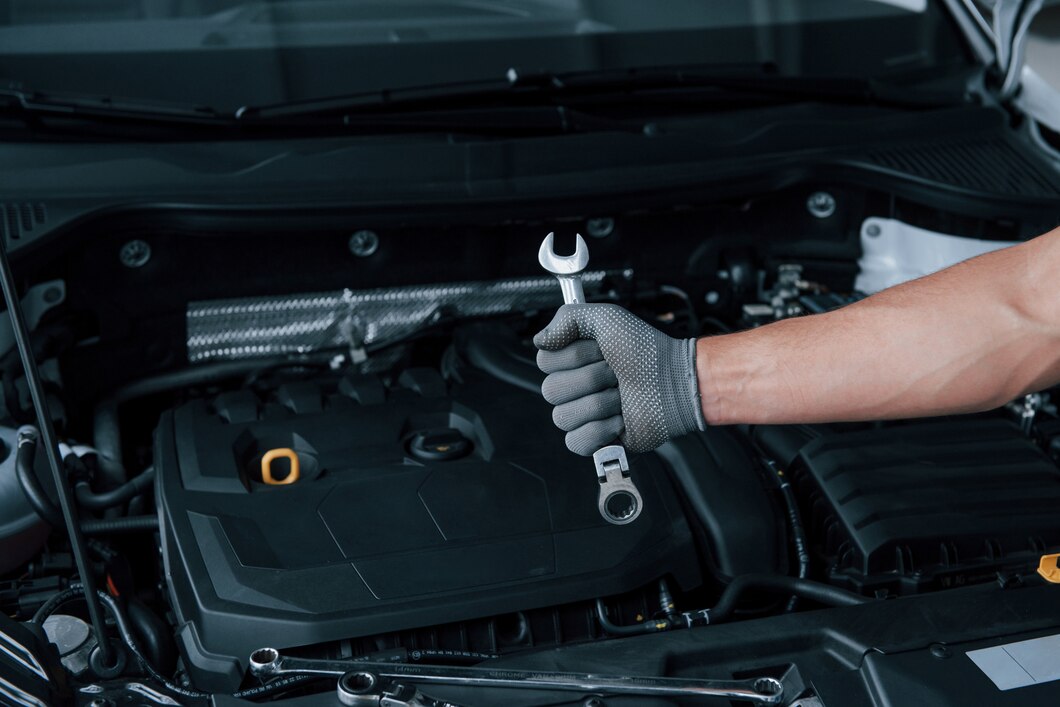An engine misfire occurs when one or more of your engine’s cylinders fail to produce power, disrupting the engine’s smooth operation. This issue can lead to reduced performance, increased emissions, and potential engine damage if left untreated. Detecting the early signs of an engine misfire can help you address the problem before it escalates. Here are the key indicators that your car’s engine might be misfiring:
1. Rough Idle:
One of the most common early signs of an engine misfire is a rough or uneven idle. When your engine is idling, you may notice it running roughly, shaking, or vibrating more than usual. This occurs because the misfiring cylinder(s) disrupt the balance of the engine.
2. Hesitation During Acceleration:
If your car hesitates, jerks, or stumbles when you try to accelerate, it could be a sign of an engine misfire. This hesitation is often more noticeable when you’re trying to accelerate quickly or when the engine is under load.
3. Loss of Power:
A misfiring engine can lead to a noticeable loss of power. Your car may struggle to maintain speed or have difficulty accelerating. This power loss is due to one or more cylinders not firing correctly, reducing the overall output of the engine.
4. Poor Fuel Economy:
A misfiring engine is less efficient, leading to increased fuel consumption. If you notice a sudden drop in your car’s fuel economy, it could be due to a misfire causing incomplete combustion and wasted fuel.
5. Check Engine Light:
The check engine light is one of the most obvious indicators that something is wrong with your engine. Modern vehicles have onboard diagnostics systems that detect misfires and other engine issues. If the check engine light comes on, it’s essential to have the error codes read to determine if a misfire is the cause.
6. Unusual Noises:
A misfiring engine can produce unusual noises, such as popping, sputtering, or backfiring. These sounds are caused by unburned fuel igniting in the exhaust system or cylinders not firing correctly.
7. Engine Vibration:
Engine misfires can cause noticeable vibrations, especially when the vehicle is idling or accelerating. These vibrations result from the imbalance created by the misfiring cylinder(s).
8. Exhaust Smoke:
Excessive or unusual smoke from the exhaust can indicate a misfire. For example, black smoke suggests incomplete combustion and excessive fuel, while blue smoke indicates burning oil, which can be related to cylinder issues.
9. Smell of Unburned Fuel:
A misfiring engine can lead to the smell of unburned fuel, particularly around the exhaust or engine bay. This odor indicates that fuel is not being burned properly in the combustion chamber.
10. Decreased Performance:
Overall decreased engine performance, including sluggish response and reduced power, is a clear sign that your engine may be misfiring. This can affect the car’s drivability and make it less enjoyable to drive.
Common Causes of Engine Misfires:
Understanding what causes engine misfires can help you address the problem effectively:
- Spark Plugs: Worn or fouled spark plugs are a common cause of misfires. Replacing them can often resolve the issue.
- Ignition Coils: Faulty ignition coils can prevent spark plugs from firing correctly, leading to misfires.
- Fuel System Issues: Problems with fuel injectors, fuel pumps, or fuel filters can disrupt the fuel supply to the engine.
- Vacuum Leaks: Leaks in the intake manifold or vacuum lines can lead to an improper air-fuel mixture, causing misfires.
- Sensor Failures: Malfunctioning sensors, such as the oxygen sensor or mass airflow sensor, can provide incorrect data to the engine control unit (ECU), resulting in misfires.
- Mechanical Problems: Issues like worn piston rings, damaged valves, or a failing head gasket can also cause engine misfires.
Recognizing the early signs of an engine misfire is crucial for maintaining your vehicle’s performance and preventing further damage. If you experience any of these symptoms, it’s important to have your car inspected by a professional mechanic. Prompt diagnosis and repair can save you from costly repairs and ensure your car runs smoothly and efficiently.











